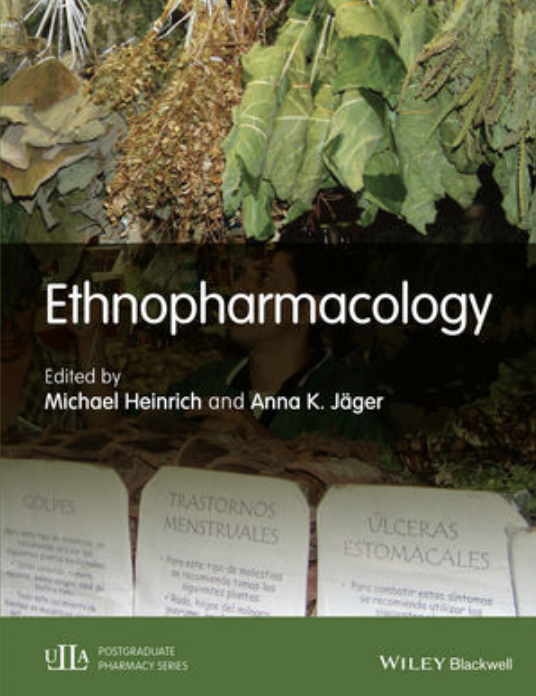What's On This Page?
ToggleFull disclosure: The main reason I’m writing this whole blog is to answer a question I get all the time which is “Why did you put a “fruit” in in your blood sugar support formula, doesn’t that raise blood sugar???”
It looks like a mistake, but as you will soon see, it was a great decision! I didn’t put a fruit in there, it’s an extract from fig which people love to eat when in season.
In the quest for natural and effective ways to manage blood sugar levels, a groundbreaking botanical extract emerges from the humble fig fruit, Ficus carica L.
Known for its delightful sweetness, and something I serve along with brie cheese, the fig has unveiled its potent health secret: It helps with glucose control thanks to one compound in it called abscisic acid or “ABA.” This ABA is naturally found in many fruits and vegetables. It’s also found in carob, which is a gluten-free chocolate substitute that some people like.
According to a STUDY published on the National Institute of Health’s site in Frontiers in Nutrition, “Abscisic acid is naturally present in fruits and vegetables, and…According to the latest U.S. dietary survey, about 92% of the population might have a deficient intake of ABA due to their deficient intake of fruits and vegetables.”
So if almost everyone is deficient in ABA, and it helps with blood glucose and cholesterol, is that a contributing factor in the diabetes epidemic?
It stands to reason that it is one small part of the pie. And that’s exactly why I formulated my supplement with a patented, all-natural extract standardized version which I sourced from ABA Life® company. A full dose of ABA is in my powerful formula called GlucoScript MAX® which … I can’t say much about it because I have to talk in code… but this formula supports already healthy cholesterol and blood sugar.* It’s fabulous for pancreatic and beta cell structure and function.*

Just a comment about the diabetes epidemic. I want to contrast genuine diabetes with statin-induced hyperglycemia (which is not technically diabetes) but you might have been diagnosed with “diabetes” anyway. But diabetes is really more of a full-body experience, and beta cell destruction. In many cases it’s autoimmune-driven. Statins cause hyperglycemia – usually isolated to elevated fasting blood sugars.
To elucidate more differences, I wrote another blog, How Statins Cause Diabetes.
You can also see the symptoms here for diabetes. You may not have them all, usually the first sign is slow or delayed wound healing, and a sensation of being thirsty.
Insulin levels will be higher than normal for years before your fasting blood glucose is elevated. I covered this in complete detail in my book sold on Amazon and also bookstores nationwide: Diabetes Without Drugs.
Fig Fruit Extract
The Fig Fruit Extract by ABA Life® stands as the world’s first of its kind, harnessing abscisic acid’s power to offer a new frontier in glycemic management for people seeking natural remedies, or adjunctive treatments with endocrine dysfunction. To be clear, this blog is not about GlucoScript, it’s about fig fruit extract and more specifically ABA’s well-documented health benefits!
The Science of Fig Fruit Extract: Enhancing Glucose Homeostasis
At the heart of this natural solution is abscisic acid (ABA), a compound that plays a pivotal role in plant stress response. ABA is like a plant’s alarm system. When the plant fails to get enough water like during a drought, and gets too dry (or the temperature gets too cold), the ABA helps the plant cope with the challenges.
It essentially tells the plant to conserve water by closing the microscopic holes in the leaves (called stomata). By closing these stomata, the remaining water in the plant doesn’t evaporate as fast. I’m not a botanist but this is the gist of it and it works until the conditions improve. There was a pretty cool study done on cherry tomatoes recently. In 2020, scientists tested two batches of tomatoes, and I’ll simplify it, but you can read more HERE if you want the details.
 Essentially, they sprayed one group of tomatoes with ABA-infused water and the other with plain water. Then they put the plants in a cozy dark place to grow. The ABA told the tomatoes (via gene expression) to grow into the best tomato it could be! The ABA tomatoes ripened better, tasted better and had greater antioxidant power!
Essentially, they sprayed one group of tomatoes with ABA-infused water and the other with plain water. Then they put the plants in a cozy dark place to grow. The ABA told the tomatoes (via gene expression) to grow into the best tomato it could be! The ABA tomatoes ripened better, tasted better and had greater antioxidant power!
Scientists decades ago knew of this and wanted to figure out how to apply it to human health. Intriguingly, ABA exhibits a powerful ability to improve glucose homeostasis and reduce cytokine release (which controls inflammation).
These are two key factors that we need to be aware of when it comes to serious, progressive disorders like Pre-diabetes or Metabolic Syndrome.
A compelling study reveals how ABA, via activation of an enzyme called “lanthionine synthetase C-like 2” which is abbreviated as LANCL2. Since ABA increases LANCL2, it can lead to metabolic changes that improve blood sugar levels – not in plants, but in people!
In this research, two fig fruit extracts, each containing different ABA doses, were tested for their effects on the glycemic and insulinemic indices following a standard glucose drink. The study’s design was meticulous: A randomized, double-blind crossover approach involving human participants, not rodents.
These participants were given test beverages containing fig fruit extract, with subsequent monitoring of glucose and insulin levels to evaluate the extracts’ efficacy in controlling postprandial (after eating) blood sugar and insulin responses. Those participants that got the drinks infused with fig fruit (which contains ABA) showcased a significant reduction in blood sugar… about 25%.
Furthermore, insulin levels were notably lowered, indicating a dose-dependent improvement in insulin response. It’s not a cure, but fig fruit extract (due to its content of ABA) is a promising nutritional strategy for people who track their post-prandial glucose levels.
It’s more than ABA!
We’ve been talking about abscisic acid, but figs contain more than that one compound. It’s the equivalent of turmeric… we always talk about curcumin, because that is highly biologically active, but turmeric has more constituents in it than just curcumin. Same with figs, it has alkaloids, flavonoids, coumarins, saponins, sterols, terpenes, and other things I can’t pronounce. 
I’m going to tell you about this STUDY published in the Journal of Ethnopharmacology which aims to shed some light on how it can help your gut and also reduce cytokines to act as an anti-inflammatory.
Scientists put on their lab coats to study the fruit only to find that the rabbits they tested it on received some other therapeutic changes that suggest figs can soothe intestinal spasms in the GI tract, while preventing platelet aggregation.
That is a process that causes clot formation, something we’ve been hearing about these past few years. By inhibiting the clumping of human platelets, fig fruit extract could offer protective effects against conditions blood clotting plays a role.
Maybe this is a natural remedy for enhancing gut motility and addressing inflammatory disorders like IBS or IBD? I wouldn’t rule it out, and if I had those conditions (Irritable Bowel Syndrome or Inflammatory Bowel Disease), I would give it a try.
There are multiple well-designed studies using modern research to prove that figs deserve as much revered status as other superfoods like blueberries and green tea.
Beyond Blood Sugar Control: A Spectrum of Health Benefits
The implications of ABA-rich fig fruits extend beyond glycemic control. As a multifaceted plant extract, one I’d happily dub a superfood, I think it offers several auxiliary benefits, particularly for individuals grappling with hypertension, high cholesterol, and pre-diabetes. Here are the 5 most noteworthy benefits:
- Inflammation Reduction
- Antioxidant Protection
- Blood Pressure Control
- Lipid Profile Improvement
- Soothing Intestinal Spasms
Let me feature some conditions where a little fig jam couldn’t hurt! Take a look at this PAPER I read that covered other medicinal properties of fig fruits. Apparently, parts of this plant/fruit were “used in native medicinal system in different disorders such as gastrointestinal (colic, indigestion, loss of appetite, and diarrhea), respiratory (sore throats, cough, and bronchial problems), inflammatory, and cardiovascular disorders.” The paper goes on to talk about how it was used for liver and spleen diseases and much more!
Embracing Nature’s Gift for Healthier Tomorrows
In summary, the ingredient called fig fruit extract (and figs themselves!) marks a significant advancement in natural health offerings because certain brands (like ABA Life) provide a clinically proven, all-natural option for those seeking to manage already healthy blood sugar levels* and metabolic health processes.*
Simply put, if you have concerns about cholesterol or blood glucose, supplements containing ABA may hold some value, especially when combined with other herbal extracts such as cinnamon, banaba, gymnema, resveratrol, and vitamin D.
With its standardized Abscisic Acid content, this extract not only promises effective glycemic control but also heralds a range of additional health benefits. Whether you’re navigating the challenges of prediabetes, type 2 diabetes, or simply striving for better metabolic health, incorporating fig fruit extract into your regimen could be a step toward achieving a healthier, more balanced life.
While natural supplements offer promising health benefits, they should complement a holistic approach to wellness that includes a balanced diet, regular exercise, and consultation with healthcare professionals. As we continue to uncover the synergies between natural compounds and human health, let’s embrace these gifts of nature with open arms and hopeful hearts.

Suzy Cohen, has been a licensed pharmacist for over 30 years and believes the best approach to chronic illness is a combination of natural medicine and conventional. She founded her own dietary supplement company specializing in custom-formulas, some of which have patents. With a special focus on functional medicine, thyroid health and drug nutrient depletion, Suzy is the author of several related books including Thyroid Healthy, Drug Muggers, Diabetes Without Drugs, and a nationally syndicated column.



